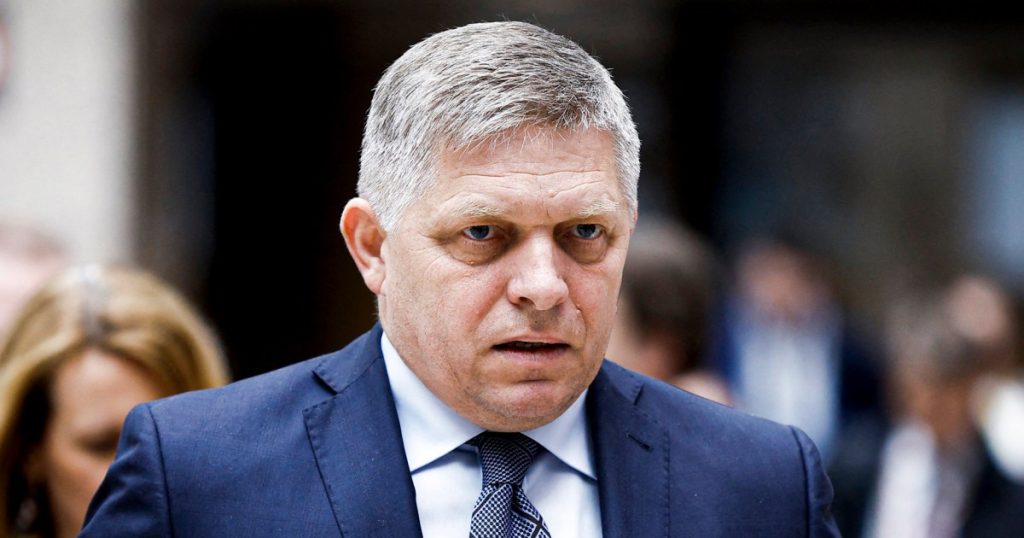Slovakian Prime Minister Robert Fico was shot and hospitalized on Wednesday, according to local media reports. The country’s president, Zuzana Čaputová, quickly condemned the attack as “brutal and reckless” in a post on social media. Vice-chairman of the Slovakian parliament, Lubos Blaha, confirmed that Fico had been injured in the shooting, which took place in the town of Handlova. Several shots were fired as Fico was greeting members of the public after a government meeting.
Fico, known for his populist and anti-American stance, was elected as leader of the Smer party in October of last year. The party’s platform includes pro-Russian policies, setting him apart from many other European leaders. The shooting took place about 110 miles northeast of Bratislava, the capital of Slovakia. While the reports have not been independently verified by NBC News, the incident has caused shock and concern among politicians and citizens alike.
The attack on Fico comes at a time of political unrest and tension in Slovakia, as the country continues to grapple with issues of corruption, economic instability, and social inequality. President Čaputová has promised to address these issues and bring about positive change for the country. Fico’s shooting has raised concerns about the safety of politicians and the potential for violence in the region.
The incident has sparked debate on the influence of populist leaders in Europe and their impact on the political landscape. Fico’s pro-Russian stance and anti-American rhetoric have garnered both support and criticism from the public. Some believe that his policies are in the best interest of Slovakia, while others fear that they may lead to further isolation and conflict.
As Fico recovers in the hospital, the country is left to ponder the implications of the shooting and what it means for the future of Slovakian politics. The incident serves as a wake-up call for politicians and citizens alike, highlighting the dangers and risks that come with public service. It remains to be seen how this event will shape the political discourse in Slovakia moving forward, and what implications it may have on the country’s relationship with other nations.


